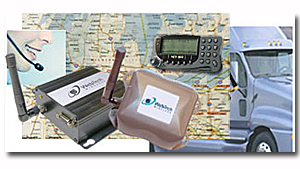|
|
 |
Knowledge Is Key
For Intelligent Decisions
Satellite Logic is a leading,
authoritative source of information in
the Satellite Industry. Located in the
heart of the Silicon Valley, Satellite
Logic provides one of the most
valuable and comprehensive
knowledge bases on the Satellite
market! This is a primary Worldwide
information center which enables our
clients to analyze, evaluate, inquire
and select their best tailored
solutions. Our company sets the
industry standards for targeted
buying leads, reflecting a dramatic
advance over traditional marketing
solutions.
|
|
|
 |

For thousands of years, Homo sapiens could observe the movement
and general habits of members of his own species as well as of
wildlife, particularly by following their tracks. It was a hard and
particular unsafe job. Hence the development of satellite tracking,
was a quantum leap in the human tracking business.
GPS tracking means to trace something or someone with the Global
Positioning System. One of the most effective ways to track any
vehicle in the world is to equip it with a GPS collar. Using the GPS -
a constellation of 24 satellites that orbit the earth and transmit
navigational data, we are able to accuratelly monitor vehicle
movements through a variety of terrains and climates.
GPS satellite tracking systems are comprised of various components
that affect the cost of ownership, and the functionality of the system.
Instead of wrestling with cumbersome paperwork, timecards, vehicle
logbooks, and billing for field services, we can use constant LAN/
Internet connectivity through a GPS device.

Today GPS Satellite Tracking is just another high-potential growth
area for GPS applications. With smaller dimensions and weights than
ever and the availability of solar cell power, these GPS tracking
devices can be used in a growing number of cases. For most of us
GPS tracking means probably GPS vehicle tracking systems, but
there are even more spectacular applications in quite different fields.
Collecting GPS data is one thing, but reading the data is often more
complicated and, especially in real-time, rather expensive. The simpler
‘passive’ units store the data in internal memory. Data can only be
read once the unit is retrieved by the user or sometimes when the unit
comes within the reach of a radio connection between the unit and a
(portable) receiver. More sophisticated GPS satellite tracking units
send the data via a cellular phone network in regular time intervals or
on demand in the case of units with two-way communication. It is
obvious that this can function only within the coverage area of the
cellular phone network. Two-way communication has the extra
advantage that the programming of the unit can be modified, even with
the unit in use and at distance. In case of a stolen car, equipped with
this kind of GPS tracking unit, one can even immobilize the starter
function, set the car alarm or lock/unlock the doors. The more
expensive GPS tracking systems can even send the data in regular
intervals via satellites.
GPS car tracking management are available as passive and active
systems.
"Real-Time" GPS - Vehicle Tracking Generally, a Real-time system
utilizes a wireless network to allow you to receive your information and
view the location of your asset in real-time. Real-time GPS tracking is
becoming the standard for companies or individuals who wish to use
a GPS locator device for tracking fleet vehicles as well as
tracking assets (trailers, generators, heavy equipment). Some
features of real-time systems include the ability to know where
your vehicle is RIGHT NOW, real-time zone alerts, arrival at customer
site alerts, speed alerts, the ability to locate the nearest vehicle to a
particular address. Generally, with a real-time system, you retrieve
your information from the internet and the GPS company servers.
"Passive" GPS - When a passive unit is installed in a vehicle, the GPS
location data is stored in the GPS receiver and downloaded from the
vehicle at the end of the day or when the vehicle returns to the yard.
Passive systems can be downloaded manually (where every driver
turns in a memory module or key at the end of the day), or
automatically (where your data is transferred wirelessly to a computer
via 900mhz when the vehicle travels within a certain distance of the
yard). Passive systems are recommended for companies who do not
have a need to view their fleet in real-time, nor do they have the need
to know where a vehicle is right now. The passive system is an
excellent system for cost conscious companies who can manage
their fleet after the vehicles and drivers return to the yard.
Usuall GPS car tracking systems are easy to install: The sytem
consists of a GPS receiver (mostly: 12 channel parallel GPS receiver)
and cellular modem which is fastened to the target. A GPS antenna
attaches with a magnet to the underside of the bumper cover and a
miniature magnet mount cellular antenna fastens to the frame. Power
is supplied by a direct connect to vehicle power or by a field
replaceable battery pack. The car monitoring system can be accessed
from a PC at your office using a software. The location of the vehicle
is displayed on a digital map of your area showing movement as it
occurs.
Choosing a GPS vehicle tracking system can be difficult. There are
many products on the market with a slew of bells and whistles. Which
bells and whistles do you really need. First, determine WHY you need
the system.
For example, what aspects of employee productivity need to be
addressed? Overtime concerns, route management, increased sales?
Or, are you in need of a system simply to ensure that a family member
has made it to his/her destination. Do you need real-time verification
or is it ok if you receive and manage the information later in the day
or week? Browse our GPS section to learn more.
|
|
|
|
